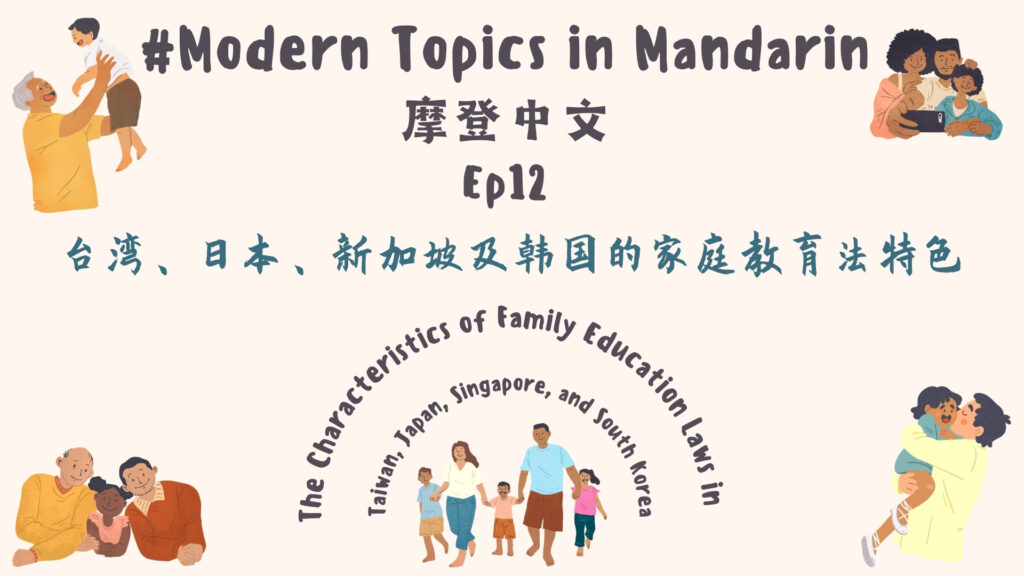The Characteristics of Family Education Laws in Taiwan, Japan, Singapore, and South Korea
Youtube
Spotify

Updated every Wednesday
If you would like detailed notes on this article, please refer to the link below. https://buy.stripe.com/dR6eW00qF8sodWw8wy
特色 (tèsè) – 表示某事物的独特特点或特殊属性。 英文解释:characteristic, feature.
推行 (tuīxíng) -实施、执行。 英文解释:implement, carry out.
定义 (dìngyì) – 明确说明某事物的含义或范围 英文解释:define, definition.
纪律(jìlǜ)- 遵守规章制度、守法的行为。 英文解释:Discipline: the practice of training people to obey rules or a code of behavior, using punishment to correct disobedience.
秩序 (zhìxù) – 有规则、有秩序的状态。 英文解释:Order: the arrangement or disposition of people or things in relation to each other according to a particular sequence, pattern, or method.
礼义廉耻 (lǐ yì lián chǐ) – 指对待人事物时应该恪守的道德准则和行为规范,包括尊重礼仪、遵守义理、廉洁自律等。 英文解释:Literally translates to “propriety, righteousness, integrity, and modesty”. It refers to the moral principles and behavioral norms that one should adhere to in dealing with people and matters, including respecting etiquette, observing righteousness, maintaining integrity, and exercising self-discipline.
历经 (lìjīng)- 经历、经过。指经历了一段时间或一系列事件。 英文解释:undergo, experience.
修正 (xiūzhèng) – 表示对原有规定或立场进行修改或调整。 英文解释:amend, revise.
国际视野 (guójì shìyě) – 考虑问题时以国际范围的观点和角度来看待。 英文解释:international perspective.
风俗民情 (fēngsú mínqíng) – 习俗和文化风情。 英文解释:customs and traditions, cultural practices.
观点 (guāndiǎn) – 对于某一问题或事物的看法或态度。 英文解释:viewpoint, perspective.
作为…的參考及依据 (zuòwéi… de cānkǎo jí yījù)- 作为某事物的参考和基础。 英文解释:As a reference and basis for… #mandarin #mandarinteacher #mandarinlearning #languagelearning #larleka.com
Donate:赞助Sophie一杯咖啡 https://buy.stripe.com/dR68xC8Xb24019K4gk